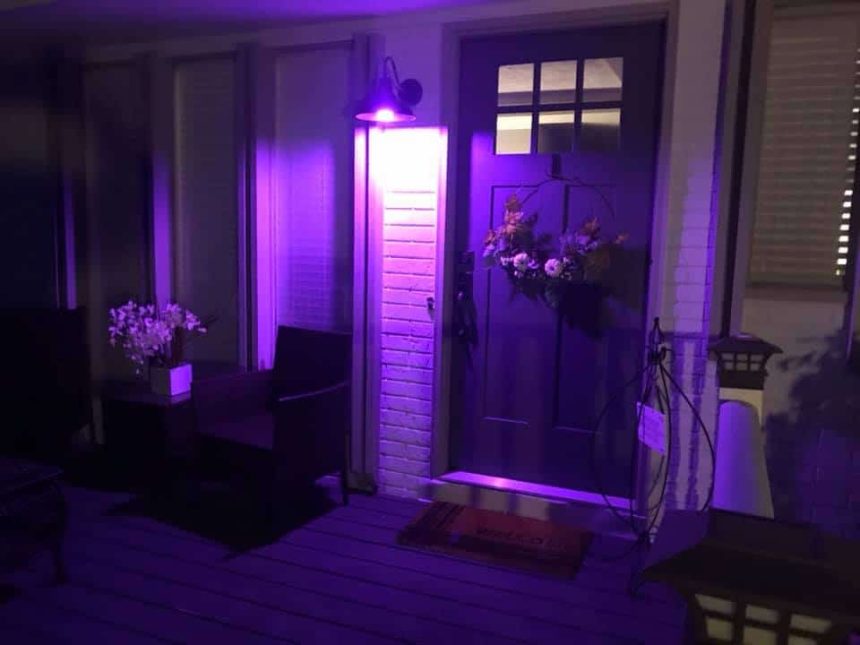October marks Domestic Violence Awareness month. Marsy’s Law for Mississippi is encouraging Mississippians to take part in its Light Your Porch Purple Campaign. Residents and businesses alike are encouraged to light their front porch in purple lights to show victims of domestic violence that they are not alone.
“We won’t stop until we achieve equal rights for crime victims in Mississippi, many of which have suffered at the hands of a significant other,” says Matthew Hebb, Marsy’s Law for Mississippi State Director. “This Domestic Violence Awareness Month, we want victims to know they are not alone. Our Marsy’s Law team and supporters won’t stop until these victims receive enforceable rights in Mississippi’s constitution.”

Marsy’s Law is named after Marsalee (Marsy) Ann Nicholas, who was stalked and killed by her ex-boyfriend in 1983. A week after her murder, Marsy’s mother was confronted by her daughter’s murderer in a grocery store. Having received no notification from the judicial system, the family was unaware that he had been released on bail mere days after the murder. Marsy’s family, and others, have faced pain and suffering since the courts and law enforcement are not obligated to keep them informed.
While criminals have more than 20 individual rights spelled out in the U.S. Constitution, the surviving family members of murder victims have none. Marsy’s Law for All seeks to amend the Mississippi constitution to ensure that crime victims have the same co-equal rights as the accused and convicted.
According to the National Coalition Against Domestic Violence, anyone can be an abuser. They come from all groups, all cultures, all religions, all economic levels, and all backgrounds. They can be your neighbor, your pastor, your friend, your child’s teacher, a relative, a coworker — anyone. It is important to note that the majority of abusers are only violent with their current or past intimate partners. One study found 90% of abusers do not have criminal records and abusers are generally law-abiding outside the home.
What Traits Do Abusers Have in Common?
There is no one typical, detectable personality of an abuser. However, they do often display common characteristics.
- An abuser often denies the existence or minimizes the seriousness of the violence and its effect on the victim and other family members.
- An abuser objectifies the victim and often sees them as their property or sexual objects.
- An abuser has low self-esteem and feels powerless and ineffective in the world. He or she may appear successful, but internally, they feel inadequate.
- An abuser externalizes the causes of their behavior. They blame their violence on circumstances such as stress, their partner’s behavior, a “bad day,” on alcohol, drugs, or other factors.
- An abuser may be pleasant and charming between periods of violence and is often seen as a “nice person” to others outside the relationship.
What Are the “Warning Signs” of an Abuser?
Red flags and warning signs of an abuser include but are not limited to:
- Extreme jealousy
- Possessiveness
- Unpredictability
- A bad temper
- Cruelty to animals
- Verbal abuse
- Extremely controlling behavior
- Antiquated beliefs about roles of women and men in relationships
- Forced sex or disregard of their partner’s unwillingness to have sex
- Sabotage of birth control methods or refusal to honor agreed upon methods
- Blaming the victim for anything bad that happens
- Sabotage or obstruction of the victim’s ability to work or attend school
- Controls all the finances
- Abuse of other family members, children or pets
- Accusations of the victim flirting with others or having an affair
- Control of what the victim wears and how they act
- Demeaning the victim either privately or publicly
- Embarrassment or humiliation of the victim in front of others
- Harassment of the victim at work
For anonymous, confidential help available 24/7, call the National Domestic Violence Hotline at 1-800-799-7233 (SAFE) or 1-800-787-3224 (TTY) now.







